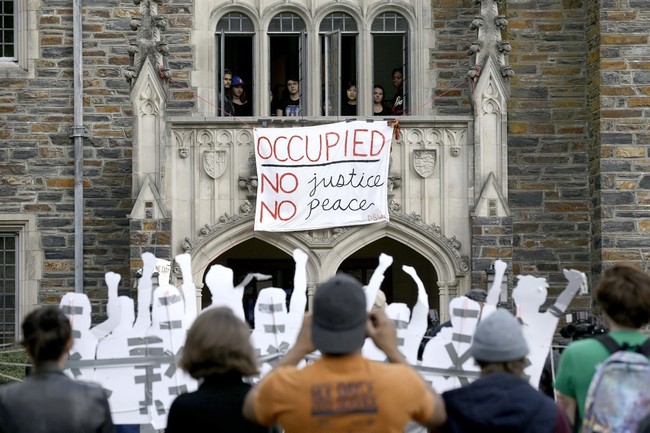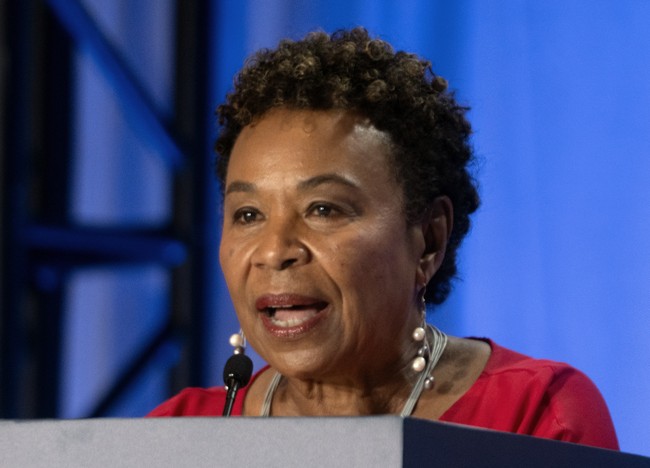To be clear up front, these two stories are not connected in any way except, as I think you’ll see, they suggest problems stemming from a common source. The first story I came across today was this one about Harvard faculty, a slight majority of whom admitted they would be hesitant to teach a class on a controversial topic.
A survey published by the university’s own Open Inquiry and Constructive Dialogue Working Group found a solid majority of profs now avoid touchy topics both inside and outside of the classroom, after things boiled over in the last year with campus protests related to the war in Gaza….
The 1,411 surveyed faculty and staff were prompted to “think about teaching a controversial issue in a class at Harvard” — and their primary reaction seems to be fear.
Just 18% said they would be very comfortable doing so, and 31% somewhat comfortable. But more than half said they would be somewhat (33%) or very (18%) reluctant.
So that’s 49% who would be comfortable teaching a controversial issue and 51% who would not be. And the numbers got even worse when the same faculty were asked about broaching such a topic on campus but outside the classroom.
A full 41% would be somewhat reluctant, and 27% very reluctant. That’s more than two thirds of Harvard professors admitting they feel chilled to speak their minds.
They walk the ivy-covered grounds in fear of their own students. The report itself makes that clear.
These individuals reported that they are reluctant to teach controversial subjects based, in part, on their perception that students find only certain views about controversial matters acceptable; their minds are not open to debate.
Educators also reported concerns about classroom surveillance, given the proliferation of recording devices and cameras in class. They described worries that students might post recordings or unfavorable comments about classroom conversations to social media. These possibilities are perceived to involve substantial reputational risk, even for tenured faculty.
Gee, I wonder which students they are talking about? Any guesses?
Completely separately, I also came across this story today about a survey of Duke faculty.
We asked Duke faculty members whether the University was putting too much or not enough emphasis on DEI in hiring, curriculum, student life and campus activities generally. Respondents could either answer too much, somewhat too much, just enough, somewhat not enough and not enough.
A plurality of respondents — 30.67% — indicated that Duke was placing just the right amount of emphasis on DEI, while 24.36% of respondents felt there was too much emphasis, 21.01% said somewhat too much, 15.46% believed it was somewhat not enough and 8.51% thought there was not enough emphasis.
Just to simplify that, 45% of faculty felt there was too much emphasis on DEI and about 31% felt it was just right. Finally, 24% felt there was not enough emphasis. And in this case we don’t have to guess which faculty feel which way about the DEI emphasis on campus.
…faculty members from the School of Law were most likely to say either the emphasis was not enough or somewhat not enough (47.37%), followed by the Sanford School of Public Policy (42.11%). Faculty members from the Fuqua School of Business were the most likely to say that the emphasis was too much or somewhat too much (59.26%), followed by the Pratt School of Engineering (50%).
Draw your own conclusions from those findings.
Anyway, although these two stories really aren’t connected beyond both involving faculty surveys at important universities, I think there is a connection. I would suggest the emphasis on DEI and the people demanding more at Duke and elsewhere are precisely the reason faculty at Harvard (and elsewhere) are afraid of the students. Creating this climate of grievance mongering and fear is what DEI does. I wrote about it at another big school, the University of Michigan, earlier this week. If you missed that one, go back and have a look. It was a long story in the NY Times Magazine but the gist was that UMich has become of hotbed of grievances.
If you combine all those lessons from all three stories into one, this is what you get: These schools are literally paying millions to make their student bodies into close-minded, grievance-mongering scolds who frighten the faculty that are supposed to educate them. It’s not a pretty picture.
Read the full article here




![This ‘Illustrates Exactly Why’ Kamala Is ‘In Trouble’ [WATCH] This ‘Illustrates Exactly Why’ Kamala Is ‘In Trouble’ [WATCH]](https://www.lifezette.com/wp-content/uploads/2024/10/2024.10.15-01.29-lifezette-670e6e3741abb.jpg)
![Internet Can’t Stop Laughing at This Hilarious ‘Could’ve Been an Email’ Proposal [WATCH] Internet Can’t Stop Laughing at This Hilarious ‘Could’ve Been an Email’ Proposal [WATCH]](https://www.boredtrashpanda.com/wp-content/uploads/2025/04/2025.04.22-08.57-boredtrashpanda-680802bf1587c.jpg)



